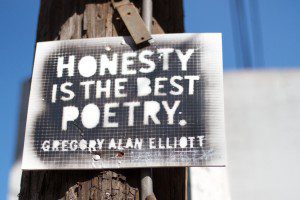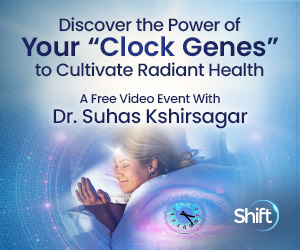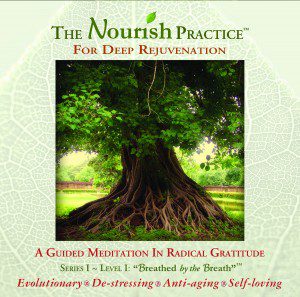By Jack Adam Weber L.Ac., Dipl. C.H.
Contributing writer for Wake Up World
“To learn about spirituality, to become spiritual, you have to give up all you think is spiritual.”
Without honesty, we live in disaccord with reality, which bears all kinds of hidden problems. Honesty is truth, and refers to the accurate perception of ourselves, each other, and the outside world.
We can only heal to the degree that we are honest, for what goes unnoticed, especially inside us, will remain largely unchanged. Our spirituality is no exception. In this vein, I will first discuss intellectual and emotional honesty as a build-up to spiritual honesty. So, please bear with me while I set the stage for this fruit of our best-used inner resources.
Intellectual Honesty
Intellectual Honesty is our capacity to notice and accurately report to ourselves and others what is true in the world, what is true of ourselves and our own logic (if it is internally consistent), and what we honestly believe. Intellectual honesty relies on our subjective capacity to level-headedly assess what is most likely true, what is factual, which is another way of describing rationality and self-evident common sense.
Some things we all consider to be true. This is called consensual, objective reality. Drinking poison will hurt you. Lying to others for our gain at another’s expense is hurtful. Abusing children is damaging and not compassionate. Unless you are a psychopath, we all hold these to be true. Good science and self-evident common sense inform us of objective truths. We now know the Earth is not flat, that it revolves around the sun and that gravity is an invisible force that causes things to fall to Earth. This all pertains to fact, to intellectual honesty.
Intellectual honesty also relies on critical thinking, which is our capacity to reason and make sure the logic of any position or discussion is internally consistent. According to Wikipedia:
“Critical thinking is clear, reasoned thinking involving critique. Its details vary amongst those who define it. According to Beyer (1995), critical thinking means making clear, reasoned judgments. During the process of critical thinking, ideas should be reasoned and well thought out and judged.”
In sum, intellectual honesty helps us ascertain fact, whether that fact is personal, interpersonal, or objectively true about the physical world. Intellectual dishonesty shows up as excuses, alibis, and justifying just about anything we want to, usually to protect our ego, pleasures (for the moment), and false sense of self. Many influences cause us to deny the truth, with the result of suffering, not just our own, but especially for those we love.
Emotional Honesty
Emotional Honesty is our capacity to consciously feel our true feelings, our true emotions, as we experience them in our body. Intellectual honesty aids emotional honesty by helping us make sure that what we base our beliefs on, and therefore our responses, is true. Intellectual honesty therefore helps us to be more emotionally honest. If we are not intellectually honest, if we don’t discover the facts of our predicament, we can generate emotions that are not appropriate in the context of external reality. If we then act on these emotions, even by expressing them, then we run the very likely risky result of doing violence onto others and creating suffering because the external world is likely not deserving of our reaction — which, had we been more patient and intellectually honest about the facts of a situation, we could have avoided. I discuss this at more length in the article Re-Thinking Love – Why Our Hearts Must Also Be Minded.
Reciprocally, being able to feel our true feelings and work through painful ones helps us assess reality more honestly. If we are not emotionally honest then we will be less intellectually honest because we’ll have unconscious emotions governing our decisions, opinions, and thoughts. This is based on some interesting science, which I mention just below. We’ll also be more prone to acting out our pain onto others via the maxim, “hurt people hurt others.”
Modern neuroscience informs us that most of our decisions and beliefs are emotionally driven. For this reason, emotional honesty, and emotional process work to heal and reduce our painful feelings, is crucial for intellectual honesty. In other words, many people won’t be intellectually honest, not because the facts are obscure, but because they don’t want to believe the truth due to a fear of feeling pain, even if it’s the death of their illusions. So, if we can accept that “the truth hurts,” and adjust accordingly, we stand to be more intellectually honest, more in alignment with reality, and ultimately more productive, effective, joyful, and helpful. These positives usually come after we make peace with the truth, become more grounded, and adjust our lives appropriately.
In one sense, all of our feelings are true because they exist. However, just because we feel something, doesn’t mean that what we assume from our feelings is true. For example, because I feel upset at you doesn’t mean that you deserve it or that you actually did anything to justify my upset. To find out if my interpretation of my feeling is accurate, I can exercise critical thinking to find out if what I believe about what upset me is true. If I find out you didn’t eat the half a watermelon I was saving and I just missed seeing it in the back of the fridge (which, if you know me, is utterly likely!), then my feeling, while true for me, was not true in its assumption and projection onto you.
I want to mention a point about emotional healing in the context of emotional honesty. If we haven’t done some core emotional wound work, we really can’t be as loving as we’d like because when our buttons are constantly pushed we tend to shut-out what triggered us, thus limiting our outreach, our love in action. What’s more, dealing intimately with our own heartaches fosters compassion and empathy in us for others that suffer (which is everyone). When we can accept our own pain and wade through our griefs until they run clear, then we can extend our love to a world that suffers. When we don’t do this personal work, we miss a lot of suffering because when external painful events trigger our unconscious pain we haven’t dealt with, we tend to defend against it and tune it out. I think this is a big unacknowledged reason for why so many deny evil and the climate change crisis.
Just as we can’t heal without intellectual honesty, without emotional honesty we also can’t heal because we don’t know what we are feeling. Emotional dishonesty, therefore, shows up as a disconnect both from feeling our feelings and being conscious of them.
Indeed, intellectual and emotional dishonesty are coping mechanisms that allow us to keep doing what we are doing, even if it is violent, cruel, selfish, and breeds unhappiness. Both allow us to deny reality and make a mess of our lives and the planet. They prevent us from waking up and from real transformation. Such people perhaps don’t realize that goodness and abundance can be found honestly and that alleviating isn’t achieved by ignorance but by embracing it, so that violence is prevented and love in action is promoted.
Our experience and awareness of both our intellect and feelings must therefore be as honest as possible to maximize emotional healing, and ultimately our spirituality. If they are not — which is likely because we have come to convince ourselves that aspects of our false self, including its many beliefs, are true — then hopefully we do have just enough honesty and intelligence, courage and care, to begin to notice where we are not being honest in both heart and mind. This begins a spiral up rather than down into more delusion and suffering, so we can more readily unravel our false sense of self in order to allow our better humanity to emerge. This true sense of self is not only the absence of heal-able heartache and all its dark spots inside us, but our full-functioning self imbued with the inner psycho-spiritual riches, what I call our Finer Jewels of Being Human, that we rescue from clearing out our hearts.
Let’s consider an example to illustrate intellectual and emotional honesty so far.
Say a blogger says, “I love animals,” and it turns out that he also eats meat. What a hypocrite, right? Especially if you’re an animal rights activist, as I am, right? Well, many jump to this conclusion without thinking it through, thereby creating the very violence they are railing against. This is a perfect example of what is often the projection and displacement of one’s own disowned violence.
Applying critical thinking, we can deduce that maybe there is a good reason that he eats meat. And, maybe he isn’t happy about it either. But we’d have to ask some questions first to become intellectually informed. For example, it’s possible that he does love animals and it might also be possible that he needs to eat meat to sustain his health. In fact, upon further discovery we find out that he can’t digest vegetable protein (a real-life problem for some people), so meat is his mainstay. So, he can both love animals and eat meat without being a hypocrite.
However, it may also pain him some to eat meat from animals that he loves.
Now, if this fellow is intellectually honest he would need to verify through self-reflection that indeed he loves animals. To be intellectually honest about this he would have to also be emotionally honest and allow himself to feel his love for animals. He would also have to admit by way of intellectual honesty that killing animals doesn’t support his love of them. His intellectual honesty would also acknowledge that he eats animals not because he wants to promote their killing, but because he needs to in order to get protein that he can digest. Yet, regardless of these facts, he might still feel badly, and rather than shut out those feelings because he is justified, further emotional honesty allows him to feel any sadness, remorse, and guilt as a result of his need and actions.
Eventually, through some process around this, he might come to a natural resolve without having had to deny aspect of his heart and mind. Indeed, this is how real growth happens, honestly. We have to struggle with things some, and if struggling for difficult truths in mind and heart is too tough for you, the option to believe dishonest spiritual slogans to live in a bliss bubble of magical beliefs and denial can be just as diminishing, if not more so.
Now, if you were one to jump all over this meat-eating, animal-loving blogger guy, would you also be able to be intellectually honest enough — by not letting your own ego get the best of you — to correct yourself, maybe even apologize? Would you be emotionally honest enough to feel and be with any remorse, sadness, and self-disappointment that came up in yourself, and be able to learn and grow from it? These same dynamics of self-correction are what would also allow major corporations to admit they are wrong, to see they do violence, to change their ways. It’s only reasonable that we should set the example, right? We can each day with ourselves, with our family, and with the land — through our actions. This is honest, grounded spirituality in action.
Spiritual Honesty
Spiritual Honesty means that we believe what is actually true about whatever our spiritual beliefs are. To be spiritually honest also means that we don’t adopt any spiritual beliefs as a way to secretly avoid feeling our difficult or enjoyable emotions. If we can’t determine what is true, then to remain honest, we say, “I don’t know.” In our not-knowing, in the empty space of existential angst, it also means that we remain intellectually honest — we don’t make up stories to fill the gap. So, spiritual honesty does not make stuff up about the universe or the world. Spiritual honesty is informed by both intellectual and emotional honesty, which also makes it more integral, or integrated, and embodied. Integral spirituality, however, bears one more crucial ingredient…
Integral spiritual honesty is the fruit, the result of intellectual and emotional honesty, that has also undergone emotional transformation, which is the healing of our core emotional wounds. The result of this process delivers us a rich inner life and deep, grounded, love and care for the world because in the depths of consciously endured heartbreak a strange happens: our heart merges with the world. It probably really doesn’t (per critical thinking intellectual honesty!), but the feeling of it allows us to remain connected to the world in a deep, embodied way from which we can help the world, which is emotionally honest and totally okay and a good thing! What we gift is our deep self, our gifts, our talents, which, coincidentally enough, have all been resurrected in the process of emotional work.
Emotional healing also delivers genuine empathy and compassion, as well as purpose and meaning, because we have lovingly abided by our own healing and cleaned out our hearts of what blocked it. So, what are commonly considered some cornerstones of spirituality — love, compassion, empathy, and universality — can be delivered by emotional work, without any need for leaps of faith. Spiritual honesty in turn relies on intellectual and emotional honesty. This way, we develop a spirituality that begins and ends in our bodies and in the world, one replete with awe, wonder, magic, and feel-good love in addition to the difficult states of appropriate anger, grief, remorse, and fear. This integral spirituality — meaning it relies on and is based in good thinking, honest feeling, and deep transformation of pain — extends itself passionately and caringly into the world without any fantastic beliefs, covert fears of feeling pain dressed up as holiness and higher states removing one from the ability to empathize and understand the suffering of others. Sounds like a package deal to me.
Spiritual dishonesty usually shows up as a result of intellectual and emotional dishonesty, because we fail to critical think for factual truth and fail to feel and thereby work through our emotions to clear our core wounds, thereby biasing our beliefs, perspectives, choices, and actions. The sequestered hurt of our core wounds from old unresolved heartbreaks — such as from childhood and past relationships we have not grieved and healed — increases our bias, our intellectual dishonesty via our defensive ego, which loves to make up stories that aren’t true so it doesn’t have to deal with pain and its own shortcomings, if not its dissolving (heaven forbid).
Many spiritualists these days seem to advocate vehemently for dissolving ego, but fail to see how defensive ego is propped up by a fear of feeling emotional pain. Without going to these core emotional roots, dismantling of ego is largely theatrics. To maintain ego submission in such instances, one would logically have to flat-line his emotions, to deny fear and thereby heartache. Sadly, what often results is an emotionally repressed spiritual sufferer. For all these reasons, my benchmark for believing a spiritual path is if a person is in touch with and has abided by the transformation of his or her emotional pain, to a significant degree, anyway. I know extremely few religious and spiritual people who do, and I treasure each of them!
Unfortunately, spiritual dishonesty is aided by the popular trend to consider thinking antithetical to spirituality, as if we had to dumb-down the nature of our love (read more about this can of worms here). So many say, “Love is the answer,” but what is the nature of the question? For love to be the answer to our complex problems, love has to be diverse, multi-faceted, not just a feeling. And for love to be all these things, we have to be able to think well.
I suspect many rebel against thinking because of their own love wounds, as result of closed-hearted parents who were too in their heads to express affection and caring. But to throw the baby of good thinking out with the bathwater of imbalanced cerebralism is a mistake. While it can be helpful to balance too much thinking with emotive expression, feel-good loving feelings are diminished because of conflict and inaccurate blame due to a lack of critical thinking. Ironically, then, not critically thinking through our own emotional wounds, thereby making thinking the villain, generates less grounded, integral love. In sum, it’s not thinking that’s to blame; it’s the imbalance between head and heart. If on anyone, the blame is ours for not thinking well enough to preserve the boons of good thinking by victimizing the head in the name of the heart. But, our hearts really do need our heads to be functional and full.
I can’t tell you the number of times I have posted a fascinating discussion about emotional work in the context of love and spirituality only to have a handful of people say it’s too much thinking for them. A lack of good thinking allows us to more easily believe whatever we want, real or not, to make stuff up. Failure to look deeply and think well causes us to miss so much of life’s fullness and live in small boxes. Isn’t spiritual anti-intellectualism, after all, an oxymoron of sorts because spirituality by definition is a global appreciation? So, wouldn’t an authentic spirituality rely on all of our assets in body and mind? Wouldn’t good thinking that ascertains fact from fiction be integral to an authentic spirituality? Let us go on loving, by all means, but let’s expand our concepts and applications of love. Let’s be accurate about what is real and what is not, or likely not.
Doesn’t the truth matter anymore? We want government agencies and greedy corporations to be honest, to ascertain fact, to feel the effects of their damaging actions and products. But can we? Mirror, mirror…
Spiritual Honesty is the opposite of Spiritual Bypassing. Spiritual Bypassing is described by Robert Masters, Ph.D. in this excerpt from his book by the same name:
“Spiritual bypassing is a very persistent shadow of spirituality, manifesting in many forms, often without being acknowledged as such. Aspects of spiritual bypassing include exaggerated detachment, emotional numbing and repression, overemphasis on the positive, anger-phobia, blind or overly tolerant compassion, weak or too porous boundaries, lopsided development (cognitive intelligence often being far ahead of emotional and moral intelligence), debilitating judgment about one’s negativity or shadow side, devaluation of the personal relative to the spiritual, and delusions of having arrived at a higher level of being.”
So, to sum up, to be spiritually honest we might be better off to be both intellectually and emotionally honest. We need to ascertain what we know to be true about the underlying beliefs of our brand of spiritual practice and its tenets. We also need to self-check ourselves for emotional bias that causes us either not to see or not to believe the facts, or likely truths, that support our spiritual beliefs. Whether it be a logistical fact or an emotional truth, we have to be willing and able to name it and call a spade a spade through the rigor of critical thinking, scientific discovery, and deep emotional honesty.
Previous articles by Jack Adam Weber:
- ReVOLUTION: When Enough is Enough
- Sex – Truth and Dare, Pleasure and Purpose
- Relationships: The Costs of Staying When We Should Leave
- Emotional Work
- Choosing a Partner – How to Avoid Relationship Suicide
- Re-Thinking Love: Why Our Hearts Must Also Be Minded
- 11 Crucial Tips for Better Digestive Health
- Shadow Work: Becoming a Sustainable Light Worker (Part 1)
- Heartbreak – Loving Ourselves Through Difficult Times
- Happiness – The Grand Illusion
About the author:

Jack Adam Weber, L.Ac. is a Chinese medicine physician, author, celebrated poet, organic farmer, and activist for body-centered spirituality. He is also the creator of The Nourish Practice, an Earth-based rejuvenation meditation. Weber is available by phone for medical consultations and life-coaching. His books, artwork, and provocative poems can be found at his website PoeticHealing.com.
You can connect with Jack at:
- Facebook: Facebook.com/JackAdamWeber
- Twitter: Twitter.com/JackAdamWeber
- Email: [email protected]
The Nourish Practice
Jack Adam Weber’s “The Nourish Practice” is an easy, guided meditation-Qi Gong practice in radical gratitude and self-love. It is an Earth-based, body-centered practice — at once physiological and mythological — that is deeply relaxing and replenishing, especially for modern-day burn-out syndrome, and requires little physical effort.
The Nourish Practice “resets your nervous system” and fosters a rich inner life.
You can purchase The Nourish Practice as a CD or Digital Download here.

If you've found value in our articles, we invite you to support the release of our brand-new book, "Gratitude Practices for Kids: A Practical Guide for Adults to Instill a Spirit of Appreciation and Positivity in the Next Generation."
"Gratitude Practices for Kids" brings together over 25 innovative and accessible practices designed to enhance gratitude in everyday life. This comprehensive guide is backed by 17 scientific studies, ensuring each concept is grounded in research, underscoring our commitment to nurturing growth, emotional intelligence, and positive interactions between adults and children.
We encourage you to opt for the paperback version to celebrate this new release. Dive into its fresh pages away from digital distractions, allowing you to immerse yourself in the transformative practices it offers.
Over recent years, Wake Up World has faced significant online censorship, which has impacted our financial ability to operate. Moving into book publishing represents a strategic step to secure the ongoing funds needed to continue our mission. By purchasing Gratitude for Kids, you help us keep our content free and accessible to everyone, avoiding needing a paywall. With over 8,500 articles published in the last 13 years, we remain dedicated to keeping our valuable content open to all.










